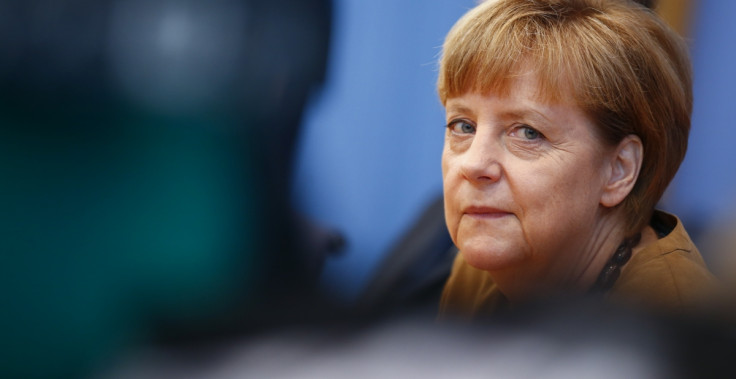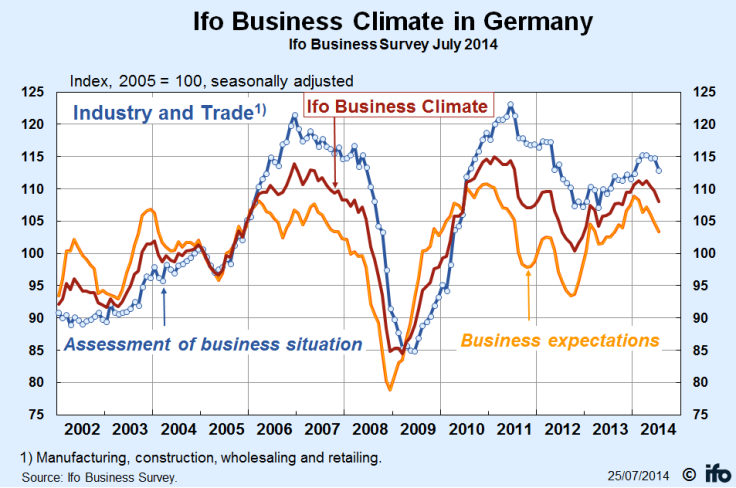German Business Confidence Hit By Exposure To Ukraine Crisis

German business confidence is plummeting on the back of the country's economic exposure to the ongoing crisis in Russia and Ukraine.
The Munich-based think-tank IFO's monthly Business Climate Index found that confidence in industry and trade fell for the third successive month in July, with expectation over future business performance also falling.
Russia is Germany's third-largest non-EU trading partner and accounts for more than €36bn of bilateral trade every year, according to the Federal Statistical Office in Berlin. Russia is a key supplier of energy to the German market, while German manufacturers provide much of the chemicals and equipment used in Russia's energy and extractive industries.
Cultural ties run deeply too: the Chancellor Angela Merkel is one of many Germans who were taught Russian while growing up in East German schools.
Ukraine accounts for less bilateral trade (about €5.5bn per year), but much of the energy Germany imports from Russia comes through pipelines that traverse the country.
Initially, Germany appeared to be one of the most reluctant of European states to sanction the Russian economy, but its rhetoric has harshened in recent weeks, with some prominent German officials calling for Russia to be stripped as host of the 2018 World Cup.
"In manufacturing the business climate index fell considerably for the third month in succession. Assessments of the current business situation were clearly less favourable. Expectations also continued to deteriorate. The export outlook fell to its lowest level for over a year," said IFO's President Hans-Werner Sinn in the note accompanying the study.

Despite the pessimism among its famed manufacturing class, analysts are expecting a solid performance from the German economy over the next two years.
The government has forecast growth of 1.8% this year and 2% next, with domestic demand providing the main engine for growth. The sentiment was echoed by the influential think-tank RWI which raised its 2014 forecast to 2% and 2015's to 2.2%.
However, the German Finance Minister Wolfgang Schäuble warned that the country is still vulnerable to the weaknesses in the Eurozone. Speaking at a conference earlier this month, he said that "the crisis hasn't been overcome" and that the German government must remain vigilant in order to ensure ongoing economic stability.
The IMF this week warned the German government that its plans to increase the minimum wage to €8.50 per hour next year could impact the country's "remarkable success" in limiting unemployment. The move is part of Angela Merkel's plan to stall the escalating trend of wage in equality.
© Copyright IBTimes 2025. All rights reserved.






















